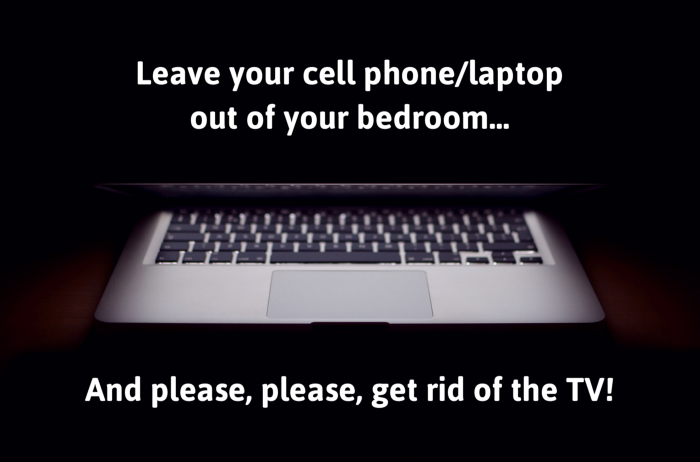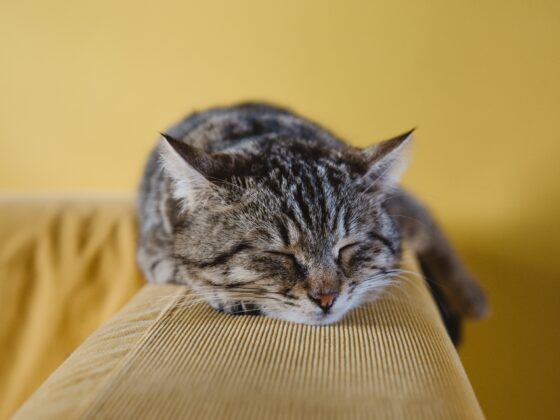In biological terms, the ‘first line of defense’ refers to your best weapon against bodily harm. Specifically, it refers to how your body’s physical design protects against disease.
Skin, for example. It’s your largest physical barrier that prevents infection. Every inch of skin and every entry to the body has physical features that combat nasty external organisms so they’re less likely to compromise our precious internal systems.
And now you’re thinking, “How does this relate to getting a good night’s sleep?”
It’s simple, actually.
Designing a smart external physical environment is crucial to your quality of sleep.
You may think that your sleep challenge is that your overactive mind refuses to rest at night, and may be unaware that small influences in your sleep environment could be the problem. You notice your racing mind because you are already awake in bed. In some cases, simply adjusting your sleep environment could be all you need to decrease your insomnia.
Certainly there are several complicated factors that contribute to your quality of rest and overall sleep health,
…but

You need to create a bedroom sanctuary like a cave – where is it dark, cool, quiet, and restful to ALL your senses.
Don’t Underestimate The Power of a Quiet Sleep Cave
“Wait! I’m seriously having trouble. Will small changes in my sleep environment make enough of a difference?!”
Here’s the thing. Knowing something useful is one thing. Taking positive action as a result is completely different.
Let me ask you this:
Are you willing to start with something? A small easy step? One you could be successful with? Where you can see results right away? It’s worth a try, and wouldn’t it feel great?
It’s time now. Here are some ideas for you.
Here are 5 Essentials For Your Cozy Sleep Cave
#1 — Zero Light
If you haven’t given yourself the luxury (and after you’re done this article, you’ll realize, the necessity) of blackout blinds — do it!
Blackout blinds provide an incredible, dark, cocoon-like atmosphere. Not only do they prevent those early summertime rays from bursting into your room, but they protect against mis-firing melatonin production.
Why You Need to Care About Melatonin
Sleep is all about the circadian rhythms of light and dark that your body needs. Melatonin is an anti-oxidant hormone released in response to darkness, and it signals you to move into a daily recovery phase, needed for both body and brain. The rhythm of melatonin release is crucial for intricate body processes like immune health, sexual health, brain detoxification, and muscle development and recovery that occurs during your nighttime sleep hours.
Another way to ensure zero light and be a good steward for your melatonin is to cover your eyes with a slumber mask. Then as soon as you arise, throw open your blinds and let the light in to jump-start your day.
#2 — The Right Bed and Pillow Combo
You need to honestly evaluate your mattress at least every 5–7 years and most likely replace it. Truly.
I can’t tell you how many nights and mornings I have whispered a silent prayer of thanks to my memory foam mattress topper. It literally feels like floating. If chronic joint or muscle pain keeps you up at night (like my short experience of navigating a broken tailbone did), memory foam can relieve body weight on pressure points.
Choose a pillow that keeps your head, neck and back aligned in the natural curvature of your spine. Experiment with this. I use one pillow when I sleep on my back, and two small ones when I sleep on my side. I suggest using a hyper-allergenic and antimicrobial pillow that helps keep your bed clean and fresh.
Buying a new bed requires a few steps, but finding a new pillow is easy and fast. I actually think that finding a pillow that is perfect for you is even more important than your bed.
#3 — Electronics-Free Zone
And now you are thinking,
“Come on, let’s be realistic.”
Well, give me a chance to convince you. Remember that important hormone we spoke about earlier — melatonin?
Electronic screens — phones, TVs, iPads, alarm clocks with the bright green 3:24 AM peering back at you — all can inhibit melatonin release.
Not only does screen time right before bed impact your body’s signals to produce melatonin, but even a tiny power light from your TV or alarm clock can scramble these sensitive hormone levels.
You don’t want your eyes falling on any light, even when you’re getting up to go the bathroom.
Electronics or any LED lights need to be banned from the bedroom, because the blue light they emit is distracting, and it is a false signal to lower melatonin production.
The Bottom Line

Bonus Tip
If you do use a traditional alarm clock, turn your alarm on and then turn the clock away from you until morning.
Your tired body doesn’t care what time it is! And it doesn’t need you to get into a panic calculating how long it took you to fall asleep, how much sleep you missed, how much sleep time you have left, or how tired you might be the next day.
We have inadvertently conditioned our body to ignore our innate sleep processes and signals. If we got out of our own way, we would sleep more naturally.
#4 — Feel Great In Your Bedroom
Tell me, how do you feel when you step into your bedroom at night? Do you feel anxious, cranky, stressed, overwhelmed, or…
Do You Feel FABULOUS?
This is the feeling you want to shoot for. Steps to feeling fabulous when you step into your bedroom could be:
- Splurging on fresh new sheets (and I won’t judge if they are from the clearance rack at Winners!)
- Re-arranging your bedroom furniture.
- Creating a reading nook sanctuary where you can curl up with candles and good book before bed.
- Declaring the bedroom an electronics-free zone.
- Launching a de-cluttering spree to refresh your sleep space.
To sum it all up, you know you have created a perfect cozy sleep cave when you:
#5 — Love Your Bed, Pillow, and Partner!
Please don’t compromise your health. Take action today and re-design your cozy sleep cave as your first line of defense to protect your sacred sleep.









